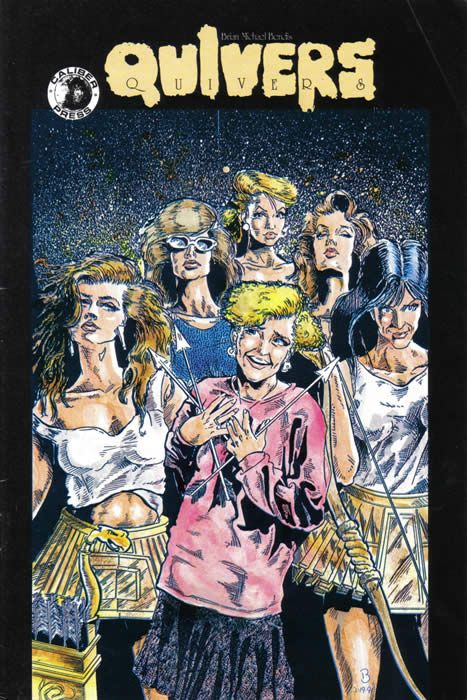Although Image Comics has staked out territory as both the premier publisher for creator-owned work and a proving ground for fledgling writers and artists, it was another 1990s company that served as an entry point for many of today's top talent: Caliber Comics.
Launched in 1989 by retailer Gary Reed, Caliber Comics was a harbinger of the coming wave of creator-owned titles. Launching with two flagship books -- Deadworld and The Realm -- Reed quickly expanded the line with his in-house anthology book Caliber Presents and a entire sub-line of illustrated books similar to Classics Illustrated. But perhaps its enduring contribution was as a doorway into the comics industry for writers and artists who are today marquee names
The list of A-list creators whose comics debuts were made possibly by Caliber is mind-boggling: Brian Michael Bendis, Stuart Immonen, Michael Lark, James O'Barr, Brandon Peterson, Dean Haspiel, Georges Jeanty and Jason Lutes all made their comics debuts here. In addition, Caliber also was where many budding creators made their first recognizable work; it was at there that Mike Allred created Madman, and Guy Davis blossomed with Baker Street.
Speaking of Bendis: He may be best known for his Marvel work, but he spent years at Caliber, which published his critically acclaimed series like Fire, AKA Goldfish and Torso, as well as several lesser-known books like Quivers, Spunky Todd and a book he penciled called Flaxxen.
In 2000, CBR interviewed the writer about his time in the independents, and he waxed about his time at Caliber. "I was in college and the first thing I did was a book called Parts of a Whole, which was based on my thesis," Bendis said. "Then came Quivers, a book about amazons from Cleveland! Looking back at my early work, they were all male paranoid fantasies, having to do with the girlfriend I had at the time. Then came Fire. Around that time, I met up with David Mack, who was starting to come into his own with Kabuki. Then I did AKA Goldfish and by that time I was out of school."
Although Caliber officially closed in 2000, the creator-owned spirit it engendered lived on through the various titles and creators it helped start.


